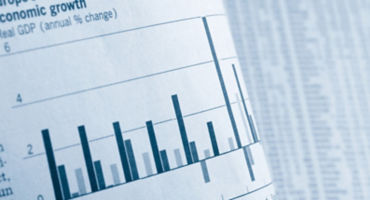Europe today faces a series of crosscurrents that I think warrant close monitoring by investors. In many ways, Europe’s powerhouse, Germany, is emblematic of these potentially consequential shifts, be it the recent surge in popularity of the far right or the challenges associated with the energy transition.
During a recent visit to Germany, my conversations with senior government and opposition officials, think tanks and industry bodies highlighted the impact of this rapidly changing political and policy backdrop. Here, I assess the potential realignment underway in Germany and Europe more broadly and consider the implications for investors.
A slowing economy
Europe is clearly facing cyclical challenges, with the economy on the brink of a recession and experiencing extremely poor business sentiment. Tighter monetary policy is starting to have an impact on economic activity, and Europe’s international exposure and high number of cyclical companies make it vulnerable to the faltering Chinese recovery. Germany is being particularly impacted by these headwinds, entering a technical recession in the first quarter, and its dependence on expensive energy imports and an increasingly tight labour market are likely to remain a drag on growth for years to come.
However, the consensus from my meetings was surprisingly positive, with most policymakers expecting German economic activity to recover in the second half of this year. In particular, the outlook for the German consumer over the next 12 months looks brighter as inflation is expected to slow, real wages are expected to rise and electricity bills are likely to continue falling.
The pressure of deglobalisation
To remain competitive on the world stage, Germany needs to preserve its industrial economy while accelerating its response to the energy transition. German politicians seem aware that the US Inflation Reduction Act and the CHIPS and Science Act are proving more effective than current European initiatives, despite the amount of funding being very similar. I’m encouraged that the government is taking measures such as engaging with companies directly to promote investments in Germany (for example, subsidising the building of semiconductor production facilities), cutting corporate taxes, trying to take stakes in grid operators to accelerate power grid upgrades and has plans to significantly reduce red tape around renewable energy projects. However, while these are all steps in the right direction, it is unclear if this will be enough.
From my recent conversations, it’s also clear that decoupling from China is a top priority across all political parties, but German companies are seemingly moving more slowly than politicians would like. With Europe ultimately aligned with the US, I believe European companies heavily exposed to China might have some tough years ahead.
Enduring labour tightness
While the arrival of Ukrainian refugees and the uptick in immigration since the lifting of COVID-related travel restrictions have eased the pressure somewhat, Germany, along with the rest of Europe, faces significant demographic pressures. With immigration being increasingly unpalatable for large sections of the electorate, I expect current labour shortages to worsen as older workers retire. This may lead to higher wages as workers have greater bargaining power, but it could also accelerate further automation and improvements in productivity.
A complex energy transition
As well as dealing with fierce global competition in securing investment in renewables, Germany and Europe as a whole are competing in a global race for access to all the ingredients needed for executing a successful energy transition, whether rare earth elements, critical minerals, battery technology or the chemicals needed to make solar panels.
Another key challenge is the implementation of potentially unpopular and costly domestic climate policies in the middle of a cost-of-living crisis, which, to, date, has already prompted a significant backlash in Germany.
A shift to the political right
Over the last 18 months, the European far right has seen a significant rise in popularity, fuelled by the above concerns but also falling trust in government institutions in response to pandemic-related policies, rising inflation and divisive social and cultural issues. With these factors unlikely to be resolved anytime soon, I expect this political trend to continue and potentially intensify during the next 12 months given numerous upcoming regional and national polls as well as European parliamentary elections.
Even if far-right parties don’t make it into power, by winning more votes they are likely to shift centre-right parties further right on policy. In addition, the rapid rise in interest rates has left little room for additional public spending to offset increasing living costs, enabling right-wing parties to take advantage of current economic grievances. Mirroring developments elsewhere in Europe, recent polls suggest German voters have decisively shifted to the right, with the right-wing Alternative für Deutschland (AfD) registering significant support. The current coalition is highly unstable and the recent surge in the AfD’s popularity has made developing government policies even more difficult. There’s significant disagreement, for example, on how to fund Germany’s industrial policy, despite all parties seemingly in favour of increasing support for the energy transition and strategically important industries.
Key implications for investors
While I am positive on Europe’s outlook in the long term, as outlined in my recent article, the challenges of deglobalisation, labour tightness and a complex energy transition create a difficult environment for European corporates to navigate.
Nevertheless, I believe this backdrop will also create a range of winners. These include the enablers of the energy transition as well as companies in strategically important industries such as semiconductors. These companies should benefit from major regulatory and political tailwinds. Moreover, tighter labour markets are likely to lead to significant investment in automation and efficiency, which could lead to significant improvements in productivity.
Europe’s move to the right, if sustained, could further complicate the situation and has several significant implications.
- While the far right is no longer running on an anti-EU platform, EU-level decision making will become less cohesive and slower.
- As gas prices have normalised, at least temporarily, it might become easier for far-right politicians to roll back some of the more expensive climate and sustainability-related policies, further complicating the energy transition.
- Immigration might become more difficult, which could cause additional problems for Europe’s tight labour market.
- Economic policy could theoretically support businesses as many right-wing parties promise smaller governments and reduced red tape but, in practice, it may lead to less coherent policies, which may undermine Germany’s and Europe’s ability to maintain competitiveness and secure investment in the new era of deglobalisation.
- Foreign policy may become less supportive of Ukraine. Over the last decade, several far-right parties in Europe have expressed support for Russian Prime Minister Vladimir Putin’s regime. While assertiveness towards Russia has increased since the invasion, many right-wing parties remain surprisingly accommodating to Russian interests according to a recent LSE study1.
From an investor’s perspective, I think this backdrop necessitates being prepared for bumps in the road as the path forward becomes harder to read, as well as looking out for longer-term opportunities likely to arise from the region’s ongoing adjustment.












Japan equity: Reason to believe
Continue readingBy
Toshiki Izumi, CFA, CMA